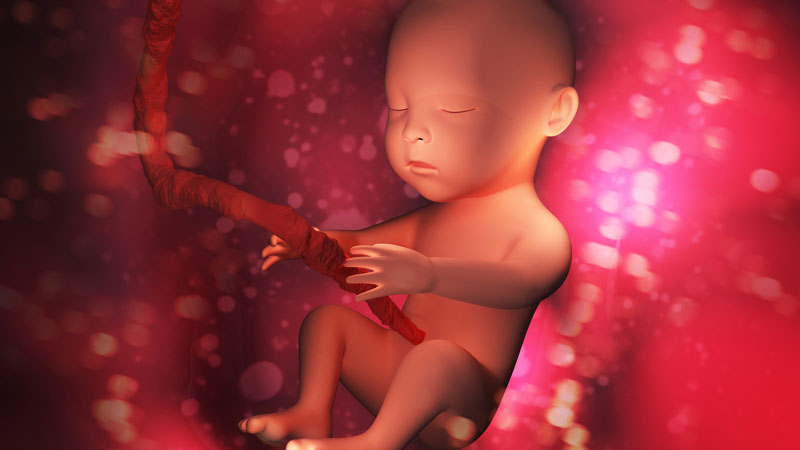Mississippi’s limit on abortion after 15 weeks—which the Supreme Court is gearing up to consider this fall—is supported by historical legal principles as well as the latest science.
The state’s obligation to protect life is rooted in centuries of common law and legal history. The United States ratified the 14th Amendment to the Constitution, which states that no person shall be deprived of “life, liberty or property, without due process of law,” in 1868. Long before that, our Founders outlined the obligation to protect life in the Declaration of Independence, and they in turn relied on the common law tradition, as described by William Blackstone.
This legal history supports the notion not only that the state must protect life, but also that it must protect unborn life.
In his Commentaries on the Laws of England, Blackstone contends that life “begins in contemplation of the law as soon as an infant is able to stir in the mother’s womb.” Similarly, when the 14th Amendment was ratified, 23 states explicitly referred to an unborn baby as a child, and nearly all had statutes limiting abortion.
Follow LifeNews.com on Instagram for pro-life pictures and videos.
Facing this historical precedent, some abortion advocates contend that a modern nation’s laws must rely on modern science. In the same breath, however, these activists rely on the scientific understanding of the 1970s. Yes, science increases our understanding of the world, and that understanding—combined with ethical ideals that recognize the humanity in people at all ages and stages—should inform our country’s laws. If our understanding increases, then we should change our laws accordingly. To behave otherwise is akin to closing your eyes, plugging your ears and refusing to acknowledge the truth.
Recent studies have shown that babies as young as 12 weeks can feel and react to pain. Yet dilation and evacuation (in which a doctor rips a fetus apart, often one limb at a time) remains the most common abortion procedure performed for pregnancies between 12 and 24 weeks.
Sadly, pro-abortion activists deny this scientific progress in order to justify America’s barbaric abortion practices. Even though we know unborn children can feel pain as early as 12 weeks, states still allow doctors literally to tear them apart as late as the 24th week. For context, the United States is one of only a handful of countries around the world (including China and North Korea) to offer elective abortions at all beyond the 20th week of pregnancy.
While this reason alone should be enough to vindicate Mississippi’s legislation, the law also incorporates a new understanding of how abortions impact women. With each gestational week after 10 weeks, the risk of complications from abortion increases 38 percent. Past studies have found that women who obtained abortions were 15 times more likely to die at 16 weeks pregnancy than at 12 weeks.
The threat which abortion poses to mothers, however, extends far beyond physical harm. In one legal case, approximately 1,000 women filed affidavits testifying that they suffered “long-term emotional damage and impaired relationships” because they had an abortion. Another study showed that women under the age of 25 who obtained abortions experienced elevated rates of depression, anxiety, suicidal behavior and substance use disorders. Abortion advocates may attempt to downplay the negative effects abortion has on a woman’s body and mind, but they cannot deny them.
Given the harm abortion inflicts on both mother and child, it is no surprise that Americans overwhelmingly support abortion restrictions past the first 3 months of pregnancy.
Mississippi’s law, which protects both children and their mothers, stands well founded on the most up-to-date science as well as longstanding legal principles.
LifeNews Note: Jeanne Mancini is president of March for Life.








